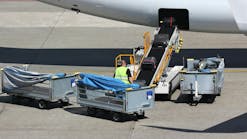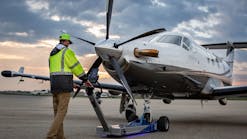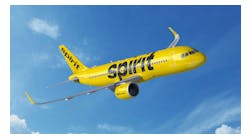NEW YORK, NY -- The Transportation Department said Wednesday it will cancel proposal for "slot auctions" at New York City airports, following strong backlash from airlines and industry groups.
The auctions were part of a plan to reduce congestion at New York's three major airports. Airlines were to bid for take off and landing times. But because of lawsuits and a court-ordered stay, the auctions had not started.
"We're still serious about tackling aviation congestion in the New York region," Transportation Secretary Ray LaHood said Wednesday in remarks to the Association for a Better New York. "I'll be talking with airline, airport and consumer stakeholders, as well as elected officials, over the summer about the best ways to move forward."
LaHood said the auction plan was dropped because "the rulemaking was highly controversial" and other changes, such as the deteriorating economy, have made the plan less vital. Congestion has eased somewhat at airports around the country as airlines reduce flights and fewer passengers fly in the recession.
Sen. Charles Schumer (D-NY), who authored legislation to block the plan, said in a statement that LaHood "made the absolute right choice to ground slot auctions once and for all."
"This plan was wrong for air travelers, wrong for New York City airports, and wrong for our entire national aviation system," he said. "Now, we all need to work together to finally put the resources and manpower behind the real solutions to our air traffic mess - upgrading ancient technology and hiring more, fully trained air traffic controllers to fully staff towers in New York and across the country."
When first announced in October, the slot auctions drew immediate fire from some airlines, including New York-based JetBlue Airways Corp., which said it would not be able to compete with other larger carriers for slots.
JetBlue had said the rule would hurt its business by not allowing it to fully utilize its new terminal at John F. Kennedy International Airport and could have resulted in tighter competition.
Three of the four largest U.S. carriers - Continental Airlines Inc., Delta Air Lines Inc., and AMR Corp.'s American Airlines - also applauded the decision in statements to the Associated Press.
Continental spokeswoman Julie King added the company encourages the administration to focus on new technology to control congestion, including modernizing the nation's air traffic control system with a satellite-based system and adding more staff to ease the network's current burden.
The Air Transport Association, an airline industry group that filed suit to block the plan, said in a statement that it shares "Secretary LaHood's concern about airspace congestion in the region and look forward to continuing to work with the DOT, the FAA and the Port Authority of New York and New Jersey to address the long-standing problems of inadequate system capacity and efficiency."
The Port Authority of New York and New Jersey, which is responsible for New York's airports and also joined in the effort against auctions, applauded the new "commonsense approach to dealing with the metropolitan area's flight delays." It had argued that the auctions would raise ticket prices without improvements in service.
A spokesman for the International Air Transport Association, another opponent of the plan, said Wednesday IATA was pleased DOT "has decided to abandon the Bush Administration's misguided proposal to reduce congestion by substantially increasing the airlines' costs during an economic crisis."
"It is a shame the government and industry had to waste 16 months debating this ill-conceived plan," IATA spokesman Steven Lott said.





